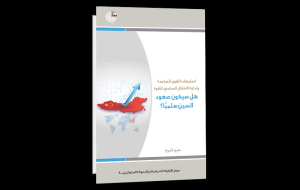Policy-makers and professionals within government departments, both civilian and military, and those responsible for protecting and advancing US interests, face a strategic environment that is far more volatile, uncertain, complex and ambiguous than that of their twentieth-century predecessors. To a large extent, the success of previous strategies has multiplied current challenges, amid globalization’s advance, which is characterized by ongoing uncertainty. This new environment requires us to explore and re-examine strategic thought, so that the US can retain global strategic dominance in the twenty-first century.
In the analysis, the author makes a clear distinction between policy, strategy and planning, before examining strategic theory. He offers comprehensive strategic insights to assist in formulating effective planning, policy and strategy. The book mainly references military theorists, as these are some of the greatest contributors to advancing strategic theory. However, it should also be pointed out to readers studying the concepts and terminology used in the book, that strategy is not limited to the realm of military gains. National Security is more than just the use of the military; it requires the development and employment of all elements of power a nation possesses. National security relates to both internal and external elements, increasing the complexities of its consolidation.
Strategic theory is instrumental for policy-makers and decision-makers. It helps shape national security professionals’ thinking as they respond to the complexity and volatility of the strategic environment; the changes and continuities, opportunities, and threats. It encourages us to rethink assumptions and prejudices, but it also encourages us to consider the assumptions and prejudices of our adversaries and other actors. Strategic theory opens the mind to all possibilities and forces at play, prompting us to consider the costs and risks associated with our decisions, and to weigh the consequences of those for our adversaries, allies and others. At another level, strategic theory allows actors in the national security arena, and in different spheres, to intelligently communicate a planned course of action. It can serve as a common frame of reference for the development and evaluation of an appropriate strategy, and its communication to those implementing it. Strategic theory also allows professionals to evaluate the merits of a particular policy or approach, and critique it in meaningful terms for decision-makers.
Why do many strategies fail to pass the test of real-world applicability, despite clarification from expert theorists? The answer is that strategy is far from simple, and strategic thinking is challenging. It is best viewed as both an art and a science. A sound theoretical framework can provide the methodological basis for a disciplined thought process, to assist in developing strategy and to act as a guide for others in comprehending, evaluating and critiquing the merits of a particular strategy.
While theory is an important aid in shaping thought processes, it is not a substitute for “genius”, as described by Clausewitz. History’s great strategists possessed “a highly developed mental aptitude” for both the arts and sciences. They could perceive the realities and possibilities within their environment, and were able to successfully apply these insights when developing strategy. True genius is rare, and some believe that we can no longer rely on it in today’s complex world. They argue that it is too difficult for one person—even a genius—to comprehend all of the nuances of the modern world, proposing instead that strategy is better served by an organizational process. In spite of this, strategies are often linked to individuals in the public eye, with some seeming to have a special talent for the art and science of strategy.
Regardless of whether strategy is the product of one genius, an organizational process or national debate, the ability to think strategically is vital for those in the national security field; whether policy-makers, strategists, leaders or planners.
In its broader perspective, the book presents a theoretical framework for individuals, institutions and national security practitioners to achieve a better understanding of the nature of strategic environments, and how best to apply theory when developing policy and strategy.
Harry R. Yarger
Harry R. Yarger is currently a senior fellow in the Joint Special Operations University in Florida, US. He was also Professor of National Security Policy in the Department of National Security and Strategy at the US Army War College. His research focuses on strategic theory, national security policy and strategy, terrorism, irregular warfare, effective governance and the education and development of strategic level leaders.
Published [In Arabic] by: Emirates Center for Strategic Studies and Research -Year of Publication: 2011













